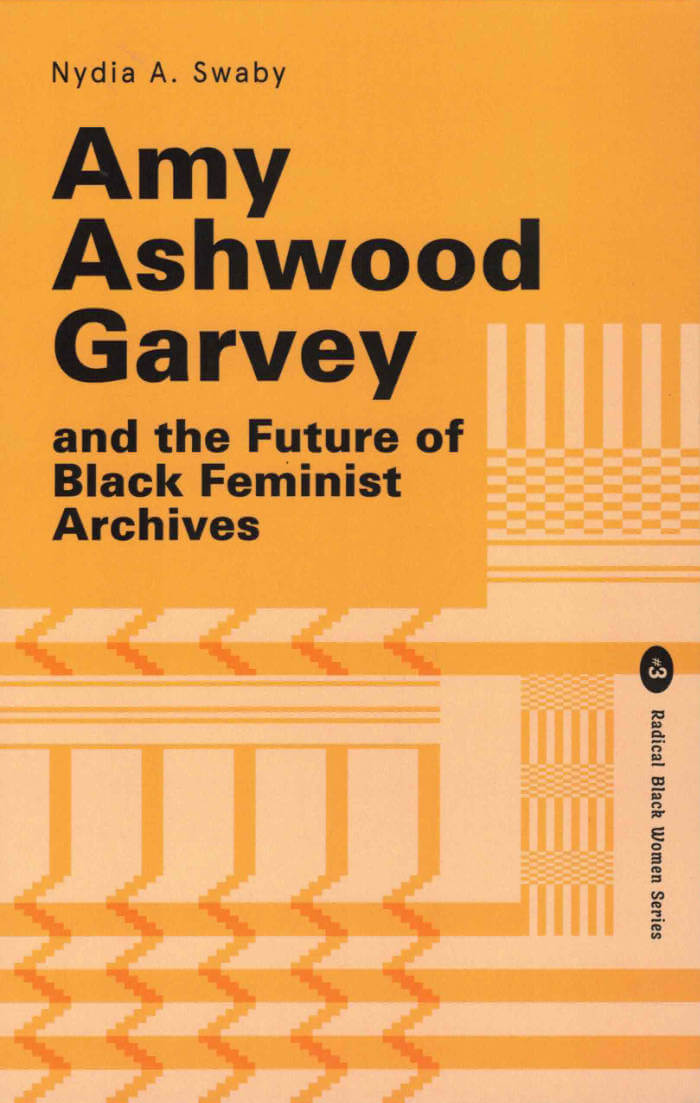Lola Olufemi
Lola Olufemi

Experiments in Imagining Otherwise
This is a book of failure and mistakes; it begins with what is stolen from us and proposes only an invitation to imagine.
In these playful written experiments, Lola Olufemi navigates the space between what is and what could be. Weaving together fragmentary reflections in prose and poetry, this is an exploration of the possibility of living differently, grounded in black feminist scholarship and political organising.
Olufemi shows that the horizon is not an immaterial state we gesture toward. Instead, propelled by the motion of thinking against and beyond, we must invent the future now and never let go of the otherwise.
Lola Olufemi is a black feminist writer and CREAM/Stuart Hall Foundation researcher from London. Her work focuses on the uses of the feminist imagination and its relationship to futurity, political demands and imaginative-revolutionary potential. She is the author of Experiments in Imagining Otherwise and Feminism, Interrupted: Disrupting Power, the co-author of A FLY Girl’s Guide to University, and a member of ‘bare minimum’, an interdisciplinary anti-work arts collective.

MsHeresies 5 — We Are Going to Lose
This fifth issue of MsHeresies republishes a selection of texts from Lola Olufemi’s book Experiments in Imagining Otherwise (Hajar Press, 2021). The texts are typeset within a collage of material from the archive of Mukti (1983–7), a publication made by the London-based South Asian feminist collective of the same name. Interviews with Mukti members Chila Kumari Burman and Amina Patel are typeset on the centre spread.
And more

Bad Language
There is no such thing as a safe word.
In Bad Language, So Mayer blends memoir and manifesto as they explore the politics of speech, while looking at how language has been used – and abused – in their own life. What is the relationship between language and sexual violence? And how can we ‘make ourselves up’ in language when words themselves are encoded by a dominant culture that insists we see ourselves as powerless listeners rather than active speakers?
Examining the semantic traps of their multi-lingual childhood – and taking in texts from the Torah to Grimms’ Fairytales, from protest bust cards to the works of Ursula K. Le Guin – Mayer asks who gets to speak, and who is forced into silence. Bad Language calls out the harm that words can do, while searching for crafty ways through which we can collectively reclaim language for protest and pleasure.
‘Mayer’s writing is generous, astute and sincere; in Bad Language, they choose their words carefully, using incantation and spell to distil a complex argument – the transformative power of language lay in its ability to shape sense perception. For Mayer, the task of ‘making ourselves up’ is another way of asking, what kind of world do we want to live in?’ – Lola Olufemi
SO MAYER is a writer, editor, bookseller and organiser. Truth & Dare, their first collection of speculative fiction, was longlisted for the Republic of Consciousness and Edge Hill Short Story prizes. With Sarah Shin, they co-edited Ursula K. Le Guin, Space Crone, winner of the 2024 Locus Award for non-fiction. Bad Language is their second book for Peninsula, after A Nazi Word for a Nazi Thing.

Amy Ashwood Garvey and the Future of Black Feminist Archives
This book charts the journey of Black feminist, artist, researcher and curator Nydia A Swaby as she pieces together a biography of Pan-Africanist and feminist Amy Ashwood Garvey from her scattered archive. In turn, it offers a reflection on the future of Black feminist archival practice.
Often referred to as the first wife of Marcus Garvey, Amy Ashwood Garvey’s contributions to movements for social justice, and in particular Black women’s rights, have largely been forgotten, not least since archives about her life and work are spread across the various places she lived.
After helping Marcus Garvey set up the UNIA, one of the most influential Pan-African movements in the world, Amy moved to New York, where she thrived in the Harlem Renaissance. In the 1930s she emigrated to Britain, where she set up a boarding house and social centre called the Afro People’s Centre, and a club called the Florence Mills Social Parlour. Swaby recovers Amy’s life and work as an important political activist, cultural producer and Pan-Africanist in her own right, retracing her steps across the Caribbean, US, Britain and West Africa.
In addition to conducting traditional archival research, Swaby creates a series of ‘curatorial fabulations’, imagining into the gaps in the archive with her autoethnographic practice. Drawing on the work of contemporary Black feminist researchers, archivists, curators and artists, and her own creative practice, Swaby animates the process of creating and curating Ashwood Garvey’s archive. In doing so, she reflects on the practice of Black feminist archiving past, present and future.
This is the third book in LW’s Radical Black Women Series. It will be essential reading for scholars and students of Black feminism, Pan-Africanism, Black British history, Black arts and archival practice. Endorsements forthcoming from leading scholars in the field including Carole Boyce Davies, Ego Ahaiwe Sowinski, Kelly Foster, Kesewa John and Lola Olufemi.

Journal for Aesthetics & Protest Leipzig
Promiscuous Infrastructures, practicing care
The Promiscuous, Renée Turner and 3 more
How do we care for each other in our living, learning and working lives? The manual Promiscuous Infrastructures Practicing Care calls for an ethics of care and attentiveness to one another, re-imagines the making and the use of infrastructures, and situates care within a genealogy of artistic and social practice.
Promiscuous Infrastructures brings together more than twenty contributors - art and social practitioners, researchers, and educators - including the twelve core members of the Promiscuous Care Study Group, who have been researching and writing about caring infrastructures and promiscuous care for several years. This project takes seriously the urgent need to imagine diverse infrastructures of care at every scale of planetary existence. The resulting interdisciplinary publication comprises essays, visual schematics and scores, personal letters, recipes, and conversations, which emerge from the work of the study group, situated around the Willem de Kooning Academy in Rotterdam.
In society at large, the adjective “promiscuous” is commonly understood as a derogatory term, but it originally referred to people or things that “mingled confusedly or indiscriminately.”
The promiscuity the title explores is defined by a clear and collective refusal of efficiency, and favors generosity, care, love, and attention. Together, the group and their interlocutors situate their own collective care practice within a genealogy of artistic and general social practice. Adopting the UK-based Care Collective’s understanding of promiscuous, which aims toward multiplying and experimenting with caring practices beyond the shriveled forms that prevail today, Promiscuous Infrastructures addresses the following themes: institutional change, communal responsibility and accountability practices, mental health and collective care, hospitality and hosting, soil, counter-histories, intergenerational learning, joy and collective grief, and the poetics of imagining otherwise. These themes nurture a practice of multiplying and experimenting in diverse and expansive ways.
In this publication being promiscuous means taking agency within and beyond the shared context of structurally dispassionate cultural and educational institutions that require innovation, expediency, and measurable results above all.
Contributors: Carla Arcos, Jacquill Basdew, Selma Bellal, Seecum Cheung, Cooking Something Up, Yoeri Guépin, Marc Herbst, Czar Kristoff P., Pablo Lerma, Judith Leijdekkers, Carmen José, Edwin Mingard, Skye Maule-O’Brien, Lola Olufemi, Laurence Rassel, Vivian Sky Rehberg, Reading Room Rotterdam, Kari Robertson, Yusser al Obaidi, Michelle Teran, Renée Turner, and Julia Wilhelm.

Disgrace: Feminism And The Political Right
Rosie Hastings, Hannah Quinlan
DISGRACE: Feminism and the Political Right explores the history of conservative feminism in the UK from the Edwardian period to today. Expanding on Hannah Quinlan and Rosie Hastings’ research for their eponymous exhibition, the book aims to provide contextual information for the viewer, both as a resource on the history of feminism on the political right and to provide a deeper historical and political insight into the works within the exhibition.
The book centres around a timeline created by 12 etchings, with three essays covering what the artists have identified as three significant time periods, mapping the connections between the various historical manifestations of conservative feminism that lead to the current moment. An essay by Akanksha Mehta, a lecturer in Gender, Sexuality, and Cultural Studies and the co-director of the Centre for Feminist Research at Goldsmiths, considers the nature of the women’s suffrage movement, focusing on the relationship between the suffragettes and eugenics discourse. A polemical text by Lola Olufemi, a black feminist writer and organiser with the London Feminist Library, questions the women’s liberation movement and ‘sex wars’ of the mid 20th century. In the final essay – alongside etchings exploring ‘free-market feminism’, Theresa May’s ‘Women2Win’ campaign and the proliferation of transphobic rhetoric – writer, filmmaker and journalist Juliet Jacques uses Caryl Churchill’s innovative 1982 play ‘Top Girls’ to trace the trajectory of women in power, from Thatcher into the future of feminism.
FEATURING 3 ESSAYS BY:
Akanksha Mehta
Lola Olufemi
Juliet Jacques